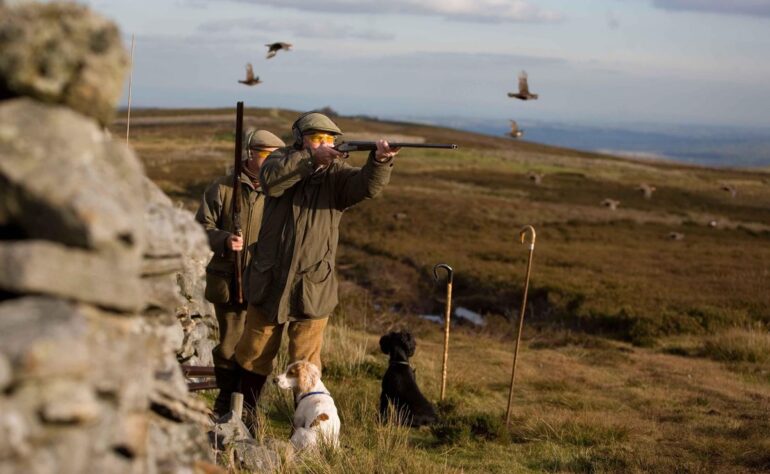Senior members of the grouse shooting industry have warned that the controversial sport is facing an uncertain future amid the growing popularity of rewilding.
In a talk given at the Game Fair in the run up to the ‘Glorious Twelfth’ of August, the traditional start of the grouse shooting season, shooting agents and lobbyists have made clear the industry is struggling to compete with the increasing number of landowners restoring moors for their nature and carbon storage potential.
The news comes as shooting estates face yet another difficult season after some shot out their breeding stocks and many of those seeking to supplement struggling grouse numbers by releasing farmed partridges imported from France have been thwarted by bird flu.
Luke Steele, Executive Director of Wild Moors, said: “There’s only one way to manage moorland for grouse shooting and that’s by burning away and damaging fragile peatland habitats and killing off competing wildlife at the expense of the climate and biodiversity.
“It speaks volumes about the inherent environmental toll of grouse moors that the industry has identified those forward-thinking landowners swapping game bird shooting for nature restoration as one of the biggest challenges to its survival.”
In a bid to drive up the numbers of grouse available for sports shooting, moorland estates burn heather to provide younger, more nutritious vegetation for game birds to eat. But the practice has been identified by Natural England as one of the biggest drivers of damage to some of the nation’s most sensitive and carbon-rich peatland sites.
Landowners which are rewilding moorland have set out to reverse decades of damage to peatlands by halting intensive practices such as burning, blocking drainage ditches and re-wetting peatlands.
One area where this transformation is taking off is the Wharfe Valley, which straddles the boundary of North and West Yorkshire. In 2021, Bradford Council kick-started restoration of the world-famous Ilkley Moor following ending grouse shooting in 2018. It has since been joined by the Denton Park Estate, which earlier this month unveiled ambitious rewilding plans for land it owns on the opposite side of the valley.
Luke Steele adds: “The world is fast moving in a direction where restoring land for nature, carbon and people is at the forefront of tackling climate change and biodiversity loss. There has never been a better time for grouse moors to join them.”
ENDS
